








In March, Dye & Durham commissioned an independent survey of 2,000 UK mortgage holders to understand the extent of the cost-of-living crisis and, specifically, how it is impacting short-term spending, long-term financial planning and day-to-day budgeting.


The survey revealed a general feeling of unease and uncertainty. Nearly a third of respondents (30%) say they’re worried they’ll fail to make mortgage payments within the next year.
With recession worries and rising interest rates weighing heavily on the nation’s mortgage holders, our research showed the impact not only on decisions about buying or selling homes, but also on their financial wellbeing and mental health.
For conveyancing and property solicitors who rely on transaction volumes, it’s critical to identify ways to shield against volatile property market conditions and to help ease the overall anxieties of homeowners. We believe the answer lies with digitisation and adopting new technology.
First, let’s take a closer look at what mortgage holders in the East of England told us:
• More than half (51%) say the current cost-of-living crisis is impacting their mental health (56% nationally)
• 72% are worried their offspring will be unable to get into the housing market, compared with 66% nationally
• Almost a third (31%) expect it will take significantly longer to pay off their mortgage than originally anticipated (36% nationally)
• To help manage monthly expenses, three in five (61%) have cut back on takeaways or meals out while 55% have reduced clothes shopping (compared to 60% and 52% nationally, respectively)
• Just over one in three (36%) expect to delay home renovation or improvement projects (35% nationally)
• 58% said they have paid more attention to their finances since interest rates started rising

• 38% of those in the East of England could not afford to continue paying their mortgage for more than two months if a job loss affected the main earner in their household (compared to an average of 36%, across the whole of the UK)
• 30% of mortgage holders in the east (and nationally) are worried they’ll fail to make mortgage repayments within the next year
• More than half (55%) have reduced the personal usage of their car to save money
• 44% said they feel stuck/unhappy in their current home/life/job but can’t afford to change their circumstances.
It’s clear that economic uncertainties, including the effects of high interest rates, energy bills and increased costs overall, are weighing on the minds of the nation’s property owners — and the fallout cannot be underestimated.
challenges due to consumers’ reservations, but there are steps that can be taken now to help weather the storm.
Firms that act now, while transaction volumes are lower, to examine their resources and adopt tools designed to digitise and modernise workflows — and increase productivity and profitability — will have a significant head start on their competitors once the market returns to normal.
By adopting digital practice management tools, legal professionals can spend more time on revenue-driving tasks and less on non-billable administration like case management, client intake and invoicing.
Our survey data shows us that people across the UK are concerned about both their short- and long-term financial futures and, as such, have reduced spending, raided savings and are delaying major purchases.
What does this mean for the industry?
Many UK law firms continue to manage much of their operations via manual or resource-intensive processes, which lack the necessary ease of access, seamless case management abilities or increased security measures to be truly productive and profitable.
Strategic plans to digitise processes were put on hold by many firms amid the peak in property transactions following the COVID-19 pandemic.
The survey findings suggest the UK property market may face considerable
At the same time, increasing the security of information, reducing overall risk and providing a more modernised customer experience for clients can only benefit all – both now and in the future, when the market bounces back to previous levels.
If you’re interested in finding out ways you can protect your bottom line against market volatility, contact the Dye & Durham team today: http://bit.ly/3FotstY
www.dyedurham.co.uk
By Paul Clarke UK Product Lead, & Durham
& Durham
President
Amanda Timcke
Birketts
Ipswich
Tel: 01473 406215
Email: amanda-timcke@birketts.co.uk
Vice President
Louise Goodenough
Haywards Solicitors
Stowmarket
Tel: 01449 613631
Fax: 01449 613851
Email: louise.goodenough@haywards-solicitors.co.uk
Deputy Vice President
Benjamin Carver
John Fowlers
Colchester
Tel: 01206 576151
Email: bencarver@johnfowlers.co.uk
Honorary Secretary
Ivana Radovic
Birketts
Ipswich
Tel: 01473 921 716
Email: ivana-radovic@birketts.co.uk
Honorary Treasurer
Louise Cardwell
Ashtons Legal
Tel: 01473 261320
Email: louise.cardwell@ashtonslegal.co.uk

Honorary Council Members
Donna Taylor, Council Member for Suffolk
Nexa Law Limited
London
Tel: 020 7504 7071 – Extension 2127
Mob: 07859 896 640
Email: donna.taylor@nexa.law
Tony Fisher, Council Member for Essex
Fisher Jones Greenwood
Colchester
Tel. 01206 835231
Mob. 07904 086254
Email: tfisher@fjg.co.uk
PRO/PLO
Louise Goodenough
Haywards Solicitors
Stowmarket
Tel: 01449 613631
Fax: 01449 613851
Email: louise.goodenough@haywards-solicitors.co.uk
Education & Training Officer
Amanda Timcke
Birketts
Ipswich
Tel: 01473 406215
Email: amanda-timcke@birketts.co.uk
Administrative Secretary
Christine Kettle
Tel: 07749 576193
Email: snels@topcopysec.co.uk
Greetings to all members, sponsors and stakeholders.
It has been a very busy few months since I took office.
Building on my themed focus for this year (Education and Succession), I have been honoured to support the following events with you:
1. Speaking at the Essex Law School Annual Law Lecture working in partnership with Essex University and SNELS;
2. Judging at ARU Live Brief contract law moot with undergraduate law students, aided and supported by the participation of Birketts, Ellisons and Tees Law;
3. Celebrating Suffolk University’s Student Law Centre achievements, accolades and recognition at the LawWorks Student Pro-Bono Awards in partnership with the Attorney General;
4. Spending time with individuals discussing their aspirations, next steps and entry routes into the legal profession;
5. Celebrating your firm achievements on LinkedIn with you; and
6. Promoting TLS’s programmes to recognise our Women in Law and Local Legal Hero’s.
To enhance the refreshed SRA guidance on well-being in the legal workplace, SNELS are working hard on a local programme of events. This should be launched on 15 June, so please, despite our busy and often challenging personal and professional lives, make regular time this quarter to reflect and utilise the resources around us to strengthen our cores.
We are working towards hosting you at our President’s Annual Dinner in October, and inviting you thereafter to nominate and vote in our inaugural Excellence Awards which ideally, will be timed to conclude my year as your President.
As always, thank you for your support and have a wonderful summer.
Amanda Timcke President, Suffolk & North Essex Law Society


Having just had a swath of bank holidays, in theory extra days off are good, time to relax and recharge, but is it really the case?
Do you find yourself working excessively in the run up to any time away to ensure that everything is done – i.e. that the work you would do on that day is squeezed into the shorter week? Does that in fact create stress, casting a shadow over your time away from work? Perhaps on your return when the backlog is released like a flood gate into your inbox it doesn’t feel like much of a break at all?
With a report stating that Solicitors are twice as likely to work on their days off and a third of legal professionals saying they have experienced increased anxiety
But we need to invest in ourselves, until then we are dependent and controllable by our employer.
For me, not investing in myself away from the workplace left me vulnerable to burnout, which cost me three months absence from work, a gruelling three months staggered return to the workplace, the loss of confidence and a lot of damage to my self-esteem –none of which I identified with before I burned out.”
Yes, employers need to get on board, they need to have initiatives to help with wellbeing, they need to be recognising when people are working too hard and have systems in place to refer them to support. However, Vikki often explores the ‘responsible

initiative’ mindset; the idea that no one in the world cares about our career, our wellbeing or our lives as much as we do.
We can help ourselves move away from impostor syndrome and minimise risk of burnout if we take control of our destiny. Perhaps now is the time to take that initiative and invest in your own wellbeing and mindset in just the same way as you would invest in your health through a gym or exercise class?

If you’d like an introduction to Vikki, or any of our other coach connections, just get in touch. We know lots of ex-lawyers who know the stresses and strains and can help you to help yourself through your legal career.
Written by Clara Rose LL.B LL.M Clara Rose Consultancy
over the past 12 months, it does make for sorry reading as to the state of the profession.
Anecdotally I have spoken to people who have fallen asleep at the wheel due to excessive hours, noticed themselves drinking more and of course looking to change jobs to find the right balance.
We work closely with a number of coaches and wellbeing experts, and we are always happy to introduce them where we feel they can help. As Vikki Pratley of Skylark says:
“When I was a practicing employment lawyer, the thought of paying for any training myself … in fact for ANYTHING myself was a foreign consideration. Courses, lunches, petrol, networking, etc. was all paid for by my firm.
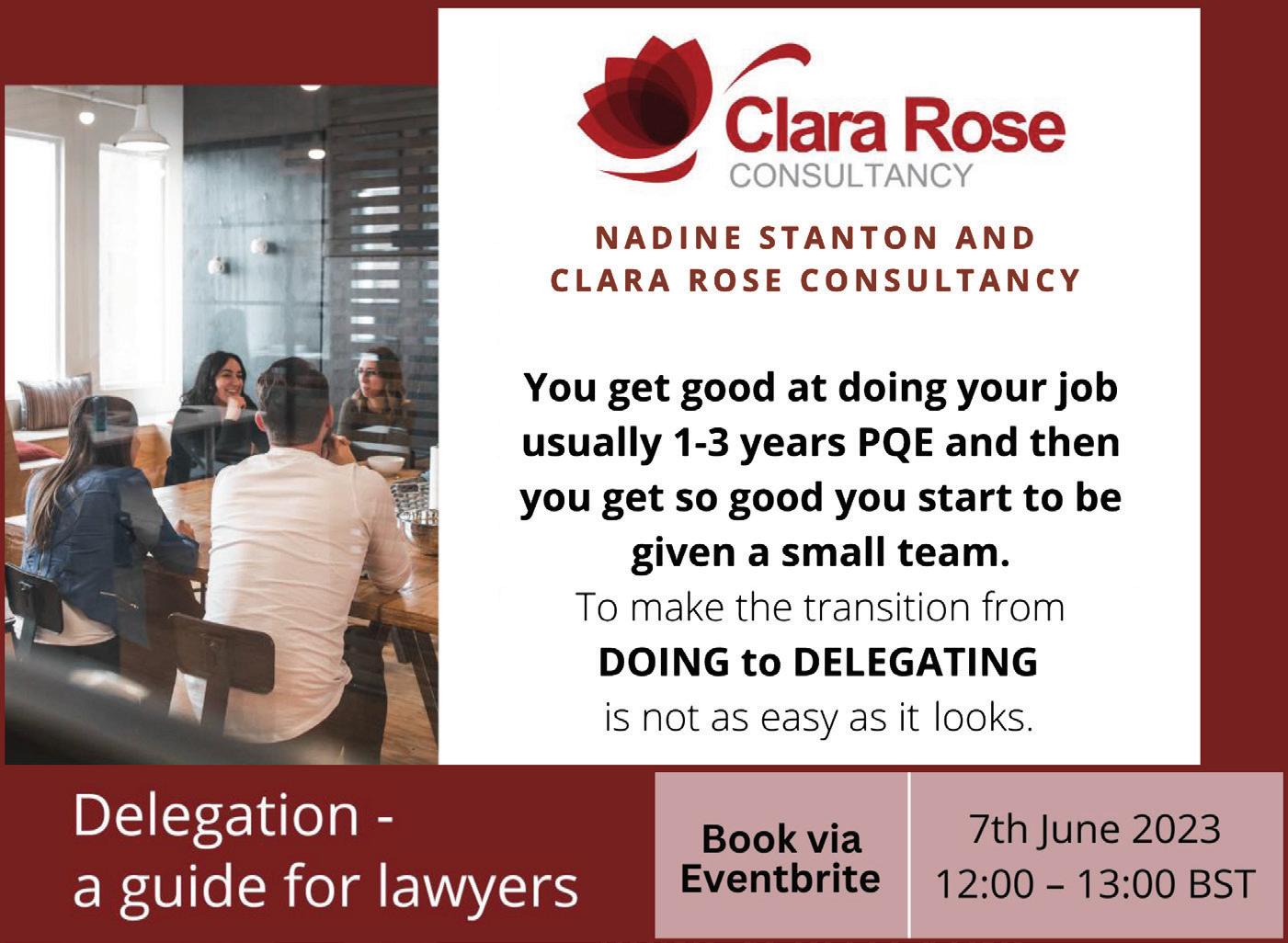
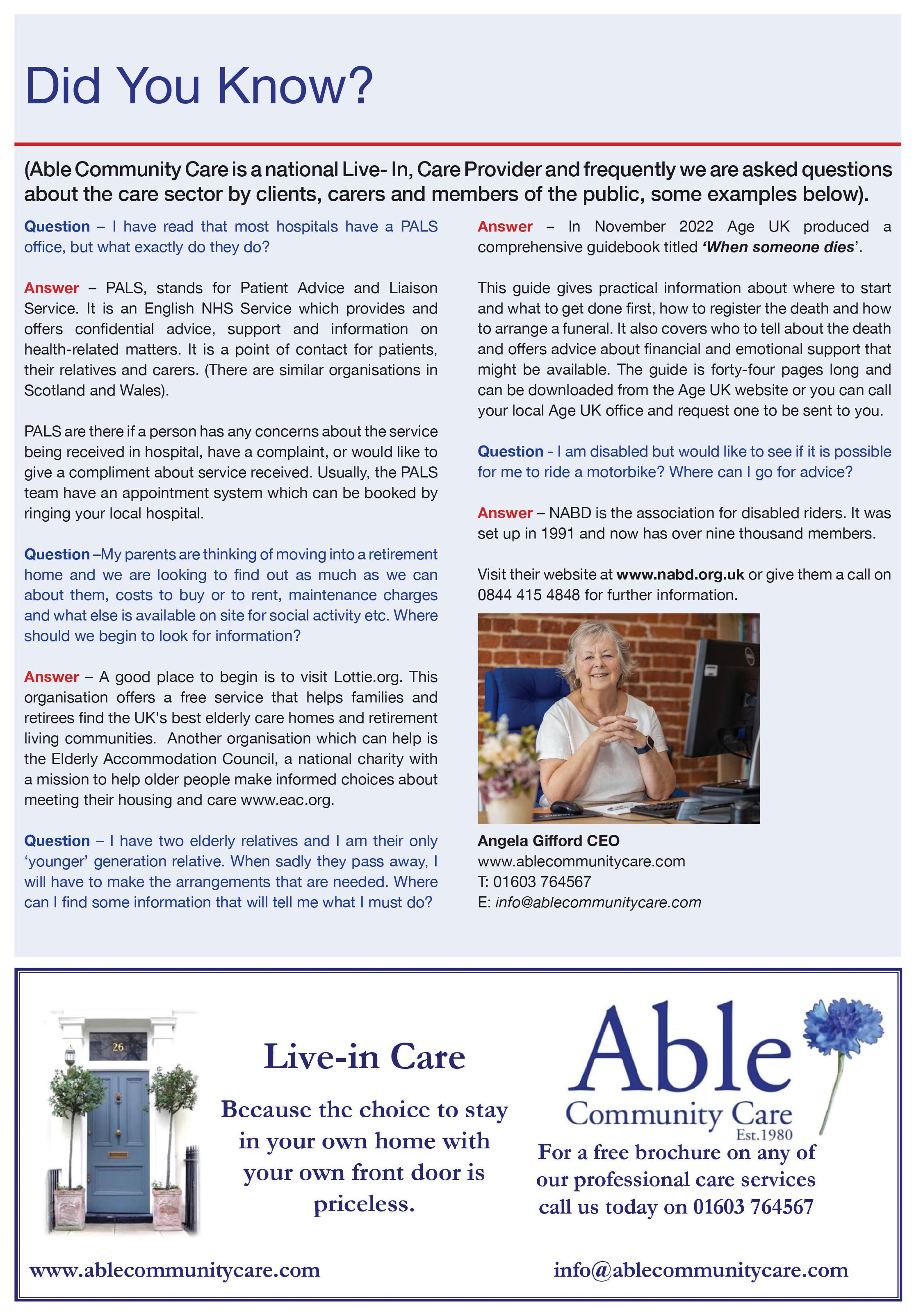
We all appreciate that attending court as a Litigant in Person (LiP) can be a frightening, bewildering and intimidating experience. In the Family team at Suffolk Law Centre we feel it is vital that LiP are given support and guidance through the often daunting court process. Therefore, in January 2023 we were delighted to be able to re-start our Family Court Help Desk (this having been something we had provided before Covid).
As many of you will know, the First Hearing Dispute Resolution Appointments for Children Act applications locally are listed every Wednesday, at Ipswich Magistrates’ Family Court Hearing Centre in Elm Street. We are grateful to the Court for allowing us to provide the Family Court Help Desk every Wednesday morning to give information to LiP, for whom it is often their first time in court.
We provide information and support regarding:
• nature and purpose of FHDRAs
• role of the CAFCASS officer
• the court process
• how the courts make decisions regarding childrenthe welfare checklist, paramountcy of child’s welfare
• the availability of Legal Aid & contact details for local LA family solicitors
• other organisations offering support
• support in communicating any Special Measures requests to the court staff.
At Suffolk Law Centre, we know how important it is that information and assistance is given by legally qualified staff and volunteers to ensure a consistently high standard of professionalism.
organisations they can approach for domestic abuse. The Family Court Help Desk provides someone for a LiP to speak to on arrival at court, when they are frightened and unsure about what is likely to happen. The repeated feedback from clients is that they are so grateful we are there. We also hope that this helps the Court, as LiP are better prepared for the proceedings. In addition to the Help Desk, we offer a Casework Service and Family Support Clinic
Casework Service:
For those who are not eligible for legal aid and are unable to pay privately, we continue to provide legal advice and assistance through our Casework service, assisting clients from the initial stages of advice on mediation, court processes and submitting applications, through to preparation of Position Statements, Witness statements, Schedules of Allegations and preparations for court hearings. In addition, we often work with clients who may well be eligible for legal aid, to understand and obtain the evidence needed, and to signpost/refer them to a Legal Aid solicitor.
We also offer one-off, weekly advice appointments in our Family Support Clinic, run by Colby Beecroft (our Paralegal) and again staffed by our invaluable Legal Volunteers: Carole Parry-Jones, Krystyna Hayes and Eloise Churchill (barrister with East Anglian Chambers). The clinic provides Litigants in Person with initial advice regarding merits of mediation, of an application in the family courts and with advice regarding the court process.

The Help Desk is therefore staffed by two experienced volunteers and two members of staff:
• Carole Parry Jones, Volunteer, retired Family Barrister and our new Vice-Chair of Trustees
• Carol Ward – SLC staff member & Solicitor
• Krystyna Hayes, Volunteer and retired Family Solicitor
• Sharon O’Donnell – SLC staff member & CILEX Member /Advanced Paralegal
The LiP we assist at the Help Desk, are often in court for the first time, and we find a significant number arrive anticipating the FHDRA is the final hearing, and with no understanding of the nature of a FHDRA. In addition, many have arrived at court unaware of the availability of legal aid, or of support
If you come across those who are Litigants in Person, please do let them know that we are at Court every Wednesday to support and help when they attend for their FHDRA’s. Please also let them know that they may be able to get advice about child arrangements through our Casework service or Family Support Clinic.
We would love to welcome new volunteers, should there be any family lawyers interested in assisting the work we do! If any readers would like more information about the Family team at Suffolk Law Centre, we would both be very happy to speak to you. Please contact:
carol@suffolklawcentre.org.uk



Anxiety was the theme for this year’s Mental Health Awareness Week (MHAW). It is a chance for the legal community to talk about the common experience of anxiety so that we can all recognise the signs and know where to turn to for support.
Working in the legal sector can be stressful and demanding, and it’s not uncommon for legal professionals to experience anxiety as a result. Anxiety describes feelings of unease, worry and fear. It incorporates both the emotions and the physical sensations you might experience when you are worried or nervous about something. Anxiety is related to the ‘fight or flight’ response –our normal biological reaction to feeling threatened.
Everyone knows what it’s like to feel anxious from time to time. It’s a normal human response to feel tense, nervous and perhaps fearful at the thought of a stressful event or decision you’re facing –especially if it could have a big impact on your life. You might even find it hard to sleep, eat or cocentrate. Then usually, after a short while or when the situation has passed, the feelings of worry stop. It’s sometimes hard to know when it’s becoming a problem for you – but if your feelings of anxiety are very strong, or last for a long time, it can be overwhelming. You might find that you’re worrying all the time. You may regularly experience unpleasant physical and psychological effects of anxiety, and maybe panic attacks.
Recognising the signs of anxiety
• Panic, fear, and uneasiness
• Sleep problems
• Not being able to stay calm and still
• Cold, sweaty, numb or tingling hands or feet
• Shortness of breath
• Heart palpitations
• Dry mouth
• Nausea
• Tense muscles
• Dizziness
• Overeating
Tips for managing anxiety
• Focus on the here and now - what is actually happening in this moment. Is there another perspective?
• Talk to people about your feelings –ask them for feedback.
• Keep a list or folder of your achievements and look at it when you need to.
• Talk to yourself as you would a friend.
• Distract yourself from your thoughts – read a book, take some exercise, see a friend, do something you enjoy.
Finding support
If you are worried about your anxiety, or if it is persistent, it is important to see your GP. Many people find counselling and CBT (cognitive behaviour therapy) helps with anxiety. Mindfulness can also help calm the mind - check out the Headspace website or app for more information.

For more information and emotional support call LawCare‘s confidential helpline on 0800 279 6888 or visit www.lawcare.org.uk
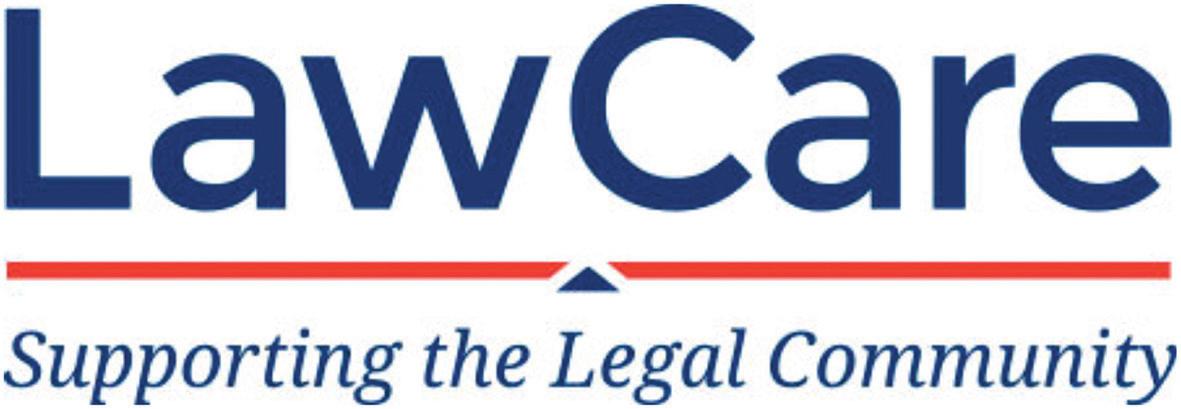

As we rapidly approach the summer and the halfway point in the 2023 calendar year, I am pleased to advise that there is cause for optimism amongst well-run firms with regards to PII market conditions as we look ahead to the October renewal season.
The vast majority of leading participating insurers have an appetite to actively grow their respective portfolios with the addition of new business. Furthermore, new capacity is set to enter the marketplace before October, meaning firms with a desirable profile are going to have even more insurer options available to them at this year’s renewal.

If we reflect briefly on what happened in the now well-populated recent spring renewal season, although a proportion of insurers did wish to increase rates –albeit more modestly than they have in recent seasons – the majority of insurers’ rates plateaued. This is a reflection of the positive dynamics within the PII marketplace, with more active competition for business. Extended policy periods also returned to availability, albeit in limited number. Nonetheless, this signals a sea change to recent years.
The one slight frustration of the spring renewal season was premium financing, with costs of borrowing increasing throughout the period, largely as a result of macroeconomic factors. Finance providers were also strengthening their due diligence processes, adversely impacting the speed of decision-making and processing of loans. We anticipate that the due diligence process will become even more stringent as we move into the October renewal.
With the likelihood of the emergence of new insurer capacity on the immediate horizon, coupled with an increased appetite among insurers already active in the market, well-run practices can expect a softening in the rates charged come October. What is not yet known, is how diluted rates will become. We also expect extended policy periods to become more readily available, with insurers once again offering the choice of up to 18 months for a portion of their portfolios.
Without wishing to dampen the positive tone of this update, the one caveat to give is that the dilution of rates doesn’t necessarily mean that there’s set to be a
dramatic reduction of premiums. For many firms, rising inflation has fuelled an increase in fee income, which will naturally have an impact on the premiums charged by insurers. It does mean, however, that for well-run and successful practices, the cost of PII premiums should not erode profit margins further, as it may well have done at recent renewal periods.
It will be of no surprise that the softening of rates may not positively impact the entire legal profession of England and Wales. This is particularly true of practices that have experienced an adverse claims position, and those that are heavily involved in perceived higher-risk practice areas. Practices should not be complacent, and cannot expect premiums to fall without any effort on their part. I cannot stress the importance in providing your chosen representative(s) with the appropriate evidence to share with the underwriters, in order to justify applying positive price corrections.
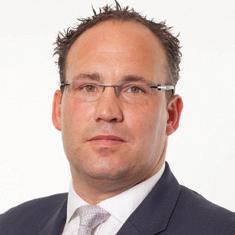
To capitalise on the improving insurance market conditions, our recommendation to you would be to commence the renewal process early. Most importantly, take the time to prepare a quality presentation that provides a positive reflection of your practice. As Lockton have advised countless times, this is your shop window for insurers, so use the opportunity wisely. It is prudent to remember that approximately two-thirds of the legal profession of England and Wales renew at the end of September, so you will be vying for the attention of the underwriting teams along with a substantial number of your peers.
Whilst insurers have an increased appetite for business, their underwriting teams will only have a finite amount of time to undertake their risk assessments. With that in mind, make sure your practice stands out from the crowd. Should you have experienced claims, provide a narrative of the situation, along with detail of what measures you have implemented to prevent their repeat. Simply stating that the fee earner responsible for the claims is no longer with your firm, is not necessarily what insurers are looking for.
I encourage you to use this opportunity to help your chosen representative(s) to educate insurers about your firm, what you do, and how you do it.
By Brian Boehmer Suffolk &Consider the fact that specialist underwriters are not solicitors, and although they will understand risk and the ramifications of any mistakes, they may not understand the intricacies of your specialism entirely. At the same time, no two practices are identical, so articulate why you are better. As they say, perception is not always the reality – an underwriter could always form an opinion which is incorrect. And once opinions are formed, they are much harder to change.
In terms of timescales, we recommend providing the presentation at least six, but preferably eight weeks in advance of your renewal date. Begin exploring finance options much earlier in the process than you have done so previously, given that the process is longer, and you may need to shop around to get the most favourable terms.
Choose your representative(s) wisely, acknowledging the fact that it would not be advantageous to scatter your presentation across the marketplace, as this may dilute the work that you have done to present your practice in a positive light. There is a possibility that your representative may not be able to reach all of the active participating insurers directly, and this may well result in you not being able to achieve the optimum solution possible for your practice. Before selecting your representative(s), establish which insurers that they can approach directly on your behalf. You will not truly benefit from an improving PII landscape should you inadvertently exclude half of the active participating insurers.
We would welcome an opportunity to canvass the market for all members of Suffolk and North Essex Law Society, or provide a second opinion. We have direct access to more active participating insurers than any of our peers, and will have insurer solutions that your current representatives cannot provide for you.
I do hope that you take up this offer, and wish you all the best.
Brian Boehmer Partnerwww.iscre.org.uk
We would love teams from local, regional, and national law firms to join Suffolk Law Centre on this sponsored walk to raise vital funding to support access to justice.

As you know, Suffolk Law Centre provides free legal advice, support and casework in social welfare law matters to those who could not otherwise afford or access it. We are hosting the annual Ipswich 10-kilometre sponsored walk in Christchurch Park Ipswich on 11 July 2023 to raise funds to support our work. As usual, the walk will conclude at The Woolpack pub, for a well-deserved drink!
Your participation would be instrumental in helping us continue to provide critical legal services to those in need. By taking part and getting sponsored, you would be directly supporting our work and making a big difference in the lives of those who cannot afford legal representation. Get your firm team together, walk to the pub and fundraise for a good cause, here is the link to register to be part of this year’s Ipswich Legal Walk - you can register as a team or as an individual: THE ACCESS TO JUSTICE FOUNDATION: 2023 Ipswich Legal Walk (enthuse.com)
For anyone who cannot take part in the Walk, but would like to support us, there is also an option to sponsor Ipswich Legal Walk 2023, please contact us to find out more.
• Walkers will arrive between 5.00-5.25pm at Christchurch Mansion, Christchurch Park, Soane Street, IP4 2BE to register your team with our volunteers and pick up the route map. Once this is complete, there will be a group photo at 5.25pm with our Lead Walkers. The walk Starts at 5:30pm.
The route is shown on the map.
• The end point will be at the The Woolpack, 1 Tuddenham Road, IP4 2SH where walkers can relax, mingle and celebrate their fundraising efforts!
Ipswich Legal Walk (11/07/2023) - Supporting the most vulnerable

• At The Woolpack, there will be a raffle drawn at 8pm.
• To support access to justice for those most in need in our community and nationwide.
• Raise awareness about free legal advice available in the Eastern region.
• Raise funding for those services to be able to continue.
• Introduce yourselves to the community.
• Unite as a sector.
If you have any questions, please do not hesitate to contact me at: stephanie@suffolklawcentre.org.uk or office@suffolklawcentre.org.uk

Not all partnerships come to a natural end, the majority of partnership splits are attributable to relationship breakdown due to irreconcilable differences which can lead to voluntary and involuntary departures. We are not talking about differences of opinion or judgement which naturally resolve when partners recognise each other’s expertise and contribution, but rather the far deeper disagreements when partners distrust, dislike and possibly even hate each other.
Initially concern may present itself about a partner’s performance, or behaviour, but we know the partners have truly fallen out when their personal relationship overshadows their professionalism.

The main areas of conflict typically addressed relate topersonality clashes; breakdown in communication; breakdown in team relationships; harassment and bullying complaints; discriminatory behaviour; poor performance, attendance, misuse and/or abuse of the internet or email; theft and a few other issues.
Partnership problems are incredibly stressful. Most people think that partnership problems occur when a business is struggling, ironically the tension often comes with business success.
The partners will need to consider if the relationship is repairable or not. It may be that a discussion between the HR manager and the relevant partners is all that is required to prevent the dispute from escalating, particularly in its early stages. In other instances it may have reached the point of requiring an impartial third party to come in to try to resolve the dispute, particularly if an HR manager is not the most appropriate person to deal with it for confidential partnership reasons.
There will be times when partners decide to call on external help from someone at a distance. Professionally trained and experienced mediators have the advantage of depth of dispute resolution expertise, and partners paying money to resolve their disagreementswill act determinedly to resolve matters.
There is no one best solution when partners disagree, business and personal considerations need to be weighted carefully to work towards an amicable and fairsolution, but this can only happen if partners are willing to accept a process than helps them examine their resolution options with care.
It is essential to start working on a solution before the situation escalates beyond the ability to talk.
Mediation is a non-adversarial way of resolving disputes and requires co-operation and collaboration from all parties. It creates effective communication and encourages civility between partners, to listen, and to rebuild trust. We all know that trust is essential to any partnership.
A good mediator doesn`t impose decisions but instead gives guidance towards achieving a positive agreement. The first step is to reduce the tension between the parties. Relationships usually fail because there have been a series of issues left unresolved, and the mediator will work with the partners to clarify and better understand the root problems.
With the assistance of the mediator in a totally safe and confidential environment, a dispute can be toned down and this helps the parties to negotiate with each other to move forward to a resolution.
Mediation can help avoid the unwelcome publicity that occurs when taking a case to court or an employment tribunal. It is better to avoida fight and find a solution that satisfies everyone than run the risk of other costly measures such as buying out a partner or ending up in court.
The fragility of the relationshipwill determine whether mediation is suitable or whether legal proceedings are required to bring finality to the matter. The circumstances under which a partner leaves will also dictate whether the partnership can be rescued or must be dissolved.
It’s damaging to let disputes fester. Simply going along with a difficult situation, causes resentment and stress leading to damaged health and wellbeing. Employeesknow very well what is going on, and over the years will divide into factions,
taking sides and undermining the success of the firm.
Forestalling confrontation is much easier than finding your way out of sticky disagreements.
A solid partnership agreement is critical. Partner and member agreements should reflect the desired business model and culture of the firm. The partnership agreement will act as a guidebook through major transitions, and establish the roles and responsibilities of partners, detailing the correct way to leave a partnership and to resolve unexpected disputes.
It is essential to address disputes professionally without delay as the future of the firm will be at risk. Buying out a partner can be expensive; it can also be difficult to raise the capital required to buy out a partner and damaging for professional and business reputations. There are however alternativessuch as restructuring, dividing the business, and providing partners with a clear mandate of authority for future business operations.
The risks and uncertainty of litigation mean that the benefits of achieving a resolution via mediation in partnership disputes are substantial. Our knowledge and experience enables us to add value when clients are establishing an appropriate business model or looking to restructure to a more effective one. We help firms to identify blind spots and avoid the potential for future partnership disputes.
Do call, in complete confidence if you would like impartial professional help for your partners.


Kimberley Williams is an accredited CEDR Commercial mediator, with a specialist CEDR employment and workplace mediator accreditation.Her background as a litigation lawyer enables her to understand the lawyers perspective and speak their language. She has been meditating professional partnership disputesbetween lawyers for almost twenty years.

Please visit www.williams-wroe.com Call +44 (0)781 4499375 Connect

Angus Lyon, LawCare volunteer and former solicitor who now works counselling lawyers online, writes about anxiety in the legal profession.
There’s an old New Yorker cartoon by Danny Shanahan.
Panel 1 shows Timmy floundering in a fast flowing river. His dog sees him from the bank. Timmy shouts, “LASSIE! GET HELP!!”
In panel 2 Lassie is lying on a shrink’s couch having therapy.
Who knows what happened to Timmy? There’s the implication of a sinister ending, but let’s just assume Lassie played her part in his rescue and then needed trauma counselling herself.
Lawyers’ workloads can be overwhelming, deadlines barely attainable, costs targets continually ratcheting up, office politics draining, anxiety levels rising and rising, and …

And sometimes it can feel like we’re drowning.
And sometimes we need to look after ourselves.
Working with stressed out lawyers over the years, I have seen that unbearable anxiety in its many forms is at the core of most of their experience.
Anxiety describes feelings of unease, worry and fear. It incorporates both the emotions and the physical sensations you might experience when you are worried or nervous about something. If your feelings of anxiety are very strong, or last for a long time, it can be overwhelming.
The statistics tell us that in England at least one in four people will experience a mental health problem of some kind each year and that one in six reports experiencing a common mental health problem (like anxiety and depression) in any given week*. That’s a lot of people. And many of them are lawyers. Maybe you? Maybe your staff?
But anxiety is good for us.
It warns and protects us from real danger. The problems come when it’s imagined or exaggerated or unrealistic.
It’s as old as mankind. Around 2,500 years ago Hippocrates, then later on Cicero and Seneca and others were identifying and distinguishing forms of anxiety. And they developed CBT-type remedies for it.
“Men are lords in riches … and yet, within the home, they still have the anxious heart which vexes life unpausingly with torments of the mind”, wrote Epicurius. Times may change but the human condition remains a constant. Thoughts and emotions and bodily responses can knot us up inside and money is a poor medicine.
When I first started researching lawyer wellbeing over a decade ago there were few good resources around. Now we’re spoilt for choice. But the wealth of available guidance can be overwhelming.
Well, maybe try here:
1 LawCare, the mental wellbeing charity for the legal profession, offers help in many ways:
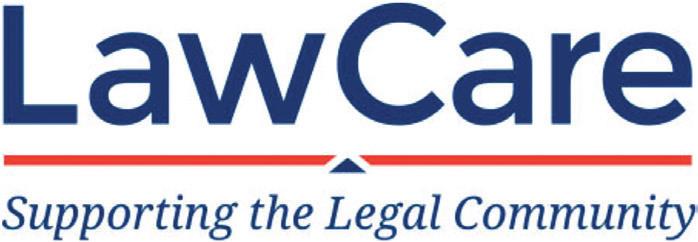
• Confidential emotional support via telephone helpline, online chat, email and peer support,
• A free 20-minute presentation for organisations,
• Fit for Law – 2 free online courses,
• Online resources,
• Training, and
• Help with the cost of professional therapy where appropriate.
2. The Mental Health Foundation’s site has more practical and evidence-based resources.
3 In late 2019 The Law Society published its Guidance for best practice in supporting wellbeing in the workplace. It’s free and I suspect was largely overlooked by the distractions of lockdown. If you are looking for a practical and comprehensive way of creating a healthier, happier workplace just download it and ransack it.
You don’t need to drown.
Angus Lyon
Angus
Lyon practised as a solicitor for almost 40 years and now works counselling lawyers online at restart-one.com. He is the author of A Lawyer’s Guide to Wellbeing and Managing Stress (Ark Group 2015).
*Reference: https://www.mind.org.uk/ information-support/types-of-mental-healthproblems/statistics-and-facts-about-mentalhealth/how-common-are-mental-healthproblems/



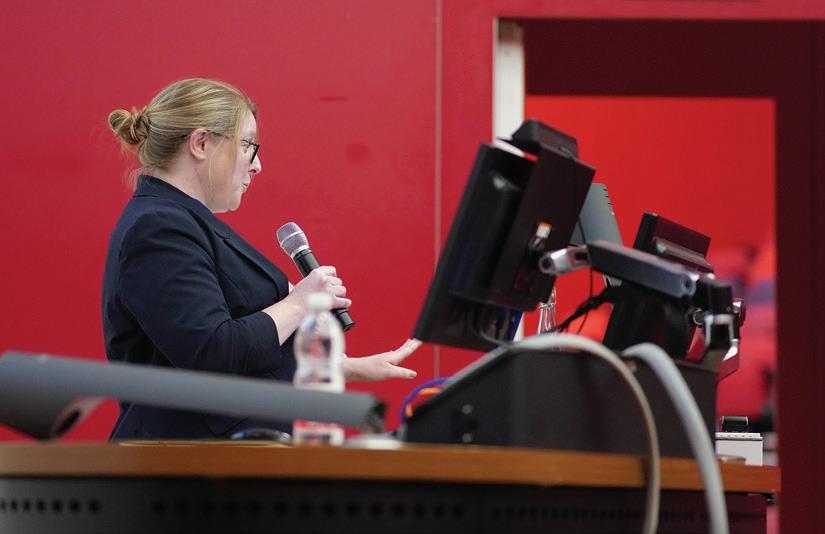

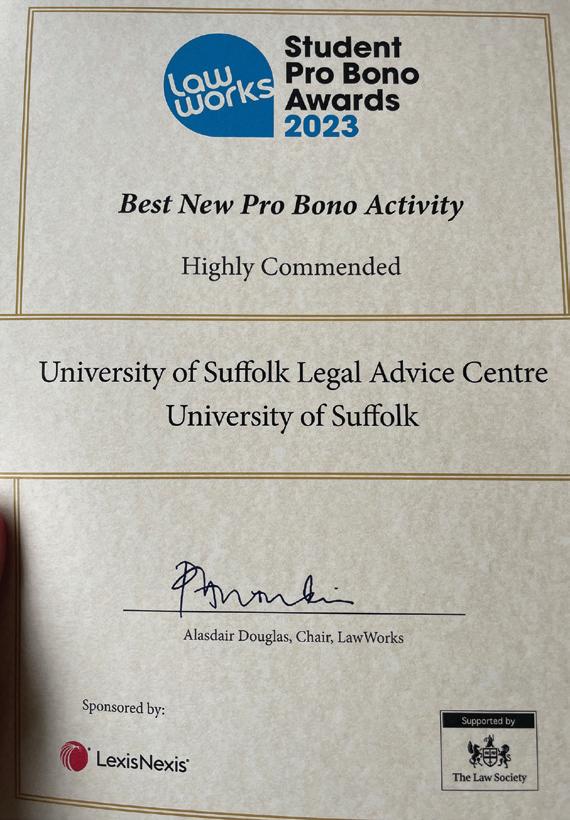
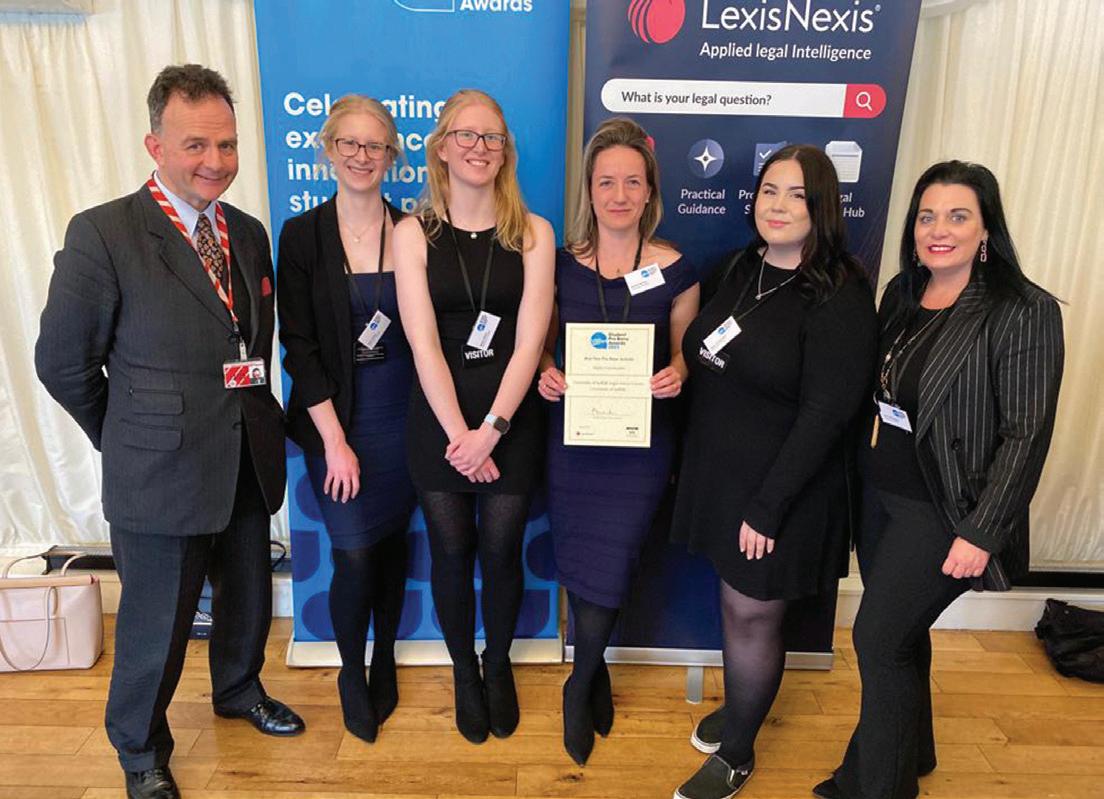

Across the world, the ability of children or indeed young adults to make decisions about issues concerning themselves is full of dilemma. Under UK law, the line between childhood and adult hood is 18 years of age1; the age of majority. This means for example, that an individual can of their own volition, vote, enter contracts (credit cards, take out loans) buy tobacco or get a tattoo. The law then allows for capacities at each age from 10 through 17, though in this article with regard to DNA testing, we will single out age 16, as now armed with a National Insurance number, minors may join the Army, get married, drink alcohol in a restaurant, get a full time job and have sexual intercourse. This is perhaps appropriate for most in todays’ UK society.
When it comes to medical treatment, then the law is very clear that the age of consent to a procedure is 18 and after this age, individuals have as many rights as adults. Under some circumstances, 16 year old individuals can make medical decisions without consent of their parents and at younger ages than that, the degree of independent consent is reliant on their competence to understand the procedure – age alone is a not a sufficient criterion. Specifically, the test of these criteria is the Gillick test2 which relates to a child under 16 receiving contraceptive advice without her mother’s consent. Over time this has been used by the medical fraternity to gain consent from under 16’s, provided they can demonstrate understanding of the nature and implications of the proposed treatment. A subset of this principle is the Fraser guidelines which specifically relate to welfare advice for under 16’s.
When considering a DNA test to determine a biological relationship (such as a paternity test), then it is important to remember that a human identity or paternity test is not a medical matter; it is quite different to other types of genetic test which are used for example, for disease diagnosis. The relevant legislation is the Human Tissue Act 1984 and Human Tissue (Scotland) Act 20063, which as an aside to its intention to clamp down on the unauthorised use of human tissue as revealed in the Bristol Royal Infirmary enquiry4, has captured the need for consent for the analysis of samples for a DNA test and which are intended for human identity testing. The Department of Health has produced helpful guidance5 and a good practice guide for companies like our own.
In addition, the Ministry of Justice operates an accreditation system for bodies “that may carry out parentage tests directed by the civil courts in England and Wales under section 20 of the Family Law Reform Act 1969”. This list is reconsidered every year and requires DNA testing companies to hold the key accreditation for calibration and testing laboratories, ISO/IEC 17025. We are pleased to say that we have been on “the list” for more than 14 years.
With regard to consent, then the first principle derives from the established laws of consent and the second from the Human Tissue Act 2004, where consent is required for possession of material from a human body that contains human cells (a buccal sample) with the intention of analysing the DNA. We must be satisfied that whoever is providing the consent for a DNA test is authorised to do so. We for example, take steps to ascertain the basis for parental responsibility and as the DNA testing organisation providing the test, are satisfied that those consenting to the taking of a sample from the child, are authorised to do so. It is also important that the consent is given on the understanding that the nature and possible consequences of the test are understood.
Parental Responsibility refers to “all the rights, duties, powers, responsibilities and authority which by law a parent of a child has in relation to the child and his property”6. In real terms, this means having input into substantial matters affecting a child’s well-being, such as education, religion medical treatments and appointing a guardian as well as having input with regards to holidays and extended stays outside the family home. Importantly, this also relates to legal proceedings involving the child and the registering/changing of a child’s name on a birth certificate. De facto, this applies to the non-medical matter of human identity testing using DNA technology, commonly known as for example, a paternity, sibling or indeed a grand-parentage test.
So who has Parental Responsibility for a child? Well firstly, the mother always (and automatically) has Parental Responsibility. Intuitively, we might think this named individual would necessarily be the biological mother (the individual who gave birth to the child) and this is generally the case. Exceptions occur in the case of surrogacy where the surrogate mother will have Parental Responsibility until it is relinquished with a Parental Order.
By Dr Neil Sullivan, BSc, MBA (DIC), LLM, PhD General Manager - Complement Genomics Ltd.
Interestingly, if a surrogate mother is married, their partner will also have Parental Responsibility for the child.
There are various additional ways that a father can gain Parental Responsibility over a child, these are: a) entering marriage or civil partnership with the mother, b) obtaining a Parental Responsibility order from a court, c) using a Child Arrangement Order, being named as a resident parent, d) having a Residence Order in place (prior to 22nd April 2014) and e) entering a Parental Responsibility Agreement with the mother. If there has been a marriage/civil partnership and then a divorce/dissolution, then the Parental Responsibility rights are retained.
Automatic Parental Responsibility is not conferred on unmarried biological fathers, unmarried partners (male or female), grandparents, other biological relatives or a step-father/step-mother. Unmarried/non civil partnership fathers who (re-) register their names on a birth certificate after 1st December 2003 can gain Parental Responsibility.
We always ask for the mother’s consent to a DNA test if the child is under 16 and encourage her to participate in the test by giving a DNA sample. Our most common question is: “Why do you need that? I know I am the mum.” Well, we are each made up of half of the mothers DNA and half of the fathers – though until we test it, we don’t know which half ! By determining which portion comes from the mum, we can then be sure which DNA relates to the father and this greatly improves the statistics of an inclusion, i.e. that the man is in fact the biological father of the child.
If you have a case requiring a DNA test to establish parentage or would just like some advice on how to establish a human relationship using DNA, then please contact us, we would be please to help.

1 Family Law Reform Act 1969
2 Gillick vs West Norfolk and Wisbech AHA and DHSS [1985] 3 WLR (HL)
3 https://www.legislation.gov.uk/ukpga/2004/ 30/contents; https://www.legislation.gov.uk/ asp/2006/4/contents
4 http://www.bristol-inquiry.org.uk/ interim_report/toc.htm
5 https://www.Wales.nhs.uk/documents/ DH_082624.pdf
6 The Children Act 1989, s3(1)


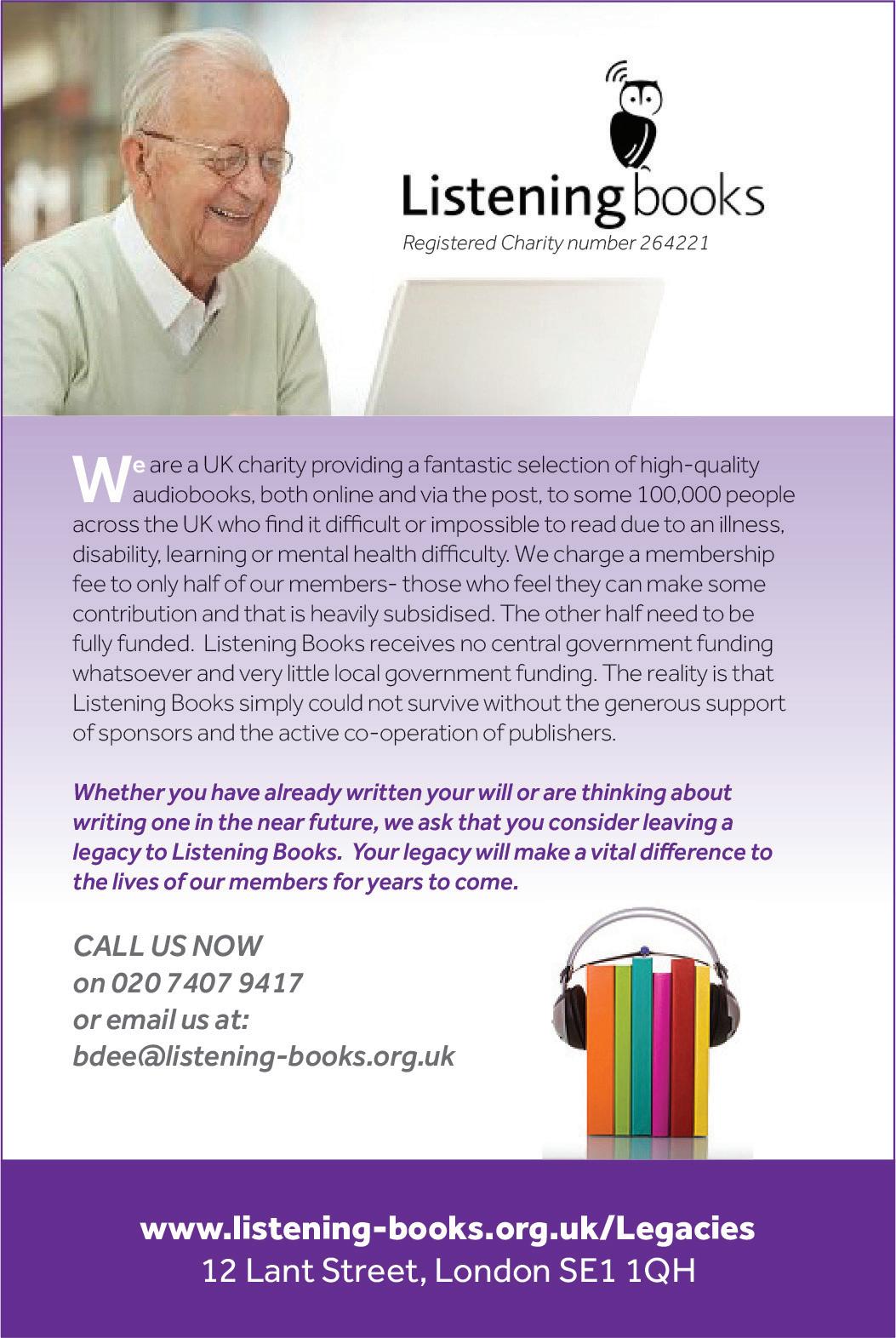
At a recent Council Meeting this week we discussed the following topics as well as appointment of a new Board chair from December 2023 and the appointment of members to the Board itself.
Council will be aware that the Law Society launched a three-year ethics programme, Changing Ethical Landscapes, at the start of this business year, which is a key priority in the Presidential Year Plan. We received a paper to provide context and information about the programme, and to bring Council up to date with its progress.
The solicitors’ profession has increasingly come under scrutiny by many stakeholders in recent years regarding a perceived conflict between a solicitor’s duties to the client and what is in the public interest This issue has becoming increasingly prevalent in recent years, as what is deemed to be in the public interest is shaped by changing societal norms and values, which are subject to events and other external developments, such as the Russian invasion of Ukraine, the MeToo movement, Black Lives Matter, and the climate change crisis.
The programme builds on the initial work undertaken on professional enablers last year, which was in response to public concerns over issues such as Strategic Ligation Against Public Participation (SLAPPs) and Non- Disclosure Agreements (NDAs). It will do so in a strategic way and with a cross-organisational approach. The intention is that the three- year programme will have a broad strategic scope, including development of a member offer as well as an external affairs narrative, targeting different membership segments.
The programme is divided into three overlapping workstreams targeting key member segments:
• Small/medium firms: offering support on day-to-day issues and regulatory intervention.
• In-house practitioners: developing bespoke member offer dealing with their particular challenges around independence and conflict of interest.
• Large firms: tackling issues pertaining to public interest.
The objectives of the programme are:-
Short-medium term:
• Further develop our member offer on support with navigating challenges arising from a changing ethical landscape.
• Address some of the reputational challenges facing the profession and develop a strong narrative that will reduce the susceptibility to attacks which label solicitors as professional enablers.
• To learn from and influence other projects that cover similar territory, so that TLS is plugged into a wider ongoing societal debate. Other projects include LSB’s project on Ethics and the Rule of Law and IBA project on Ethical Gatekeepers.
• Position TLS as a thought-leader and convener of the profession to discuss professional ethics.
Four roundtables have so far been held on three key topics:-
• Should lawyers continue to simply focus on what is lawful and allowed by their code of conduct or do they need to take account of the way society views different issues?
• How important is it for your firm to be seen to be viewed as being in step with societal changes and ethical in its practice?
• What support could TLS usefully provide for the profession?
The input from the roundtables highlighted the different needs that specific member segments have depending on the size of the firm and type of work, and with the in-house community requiring a bespoke offer, as well as bringing up diverging views across membership on possible solutions (particularly around regulation and producing more guidance).
The President also published a blog with findings from the first three roundtables on our website, and has made professional ethics the focus of several speaking engagements. The blog can be found here: https://www.lawsociety.org.uk/ topics/regulation/a-changing-ethical-landscape-findings-fromour-roundtables
There will now be an exercise to research the issues arising from the roundtables and the Society will also be reviewing the existing ethics member offer, consolidating content in a new ethics hub on the website and shaping a programme for the profession on professional ethics for the second half of the business year and for next year.
The Law Society’s (TLS) vision is to protect, promote and support solicitors, the rule of law and justice in England and Wales. To do this effectively means we must not only respond
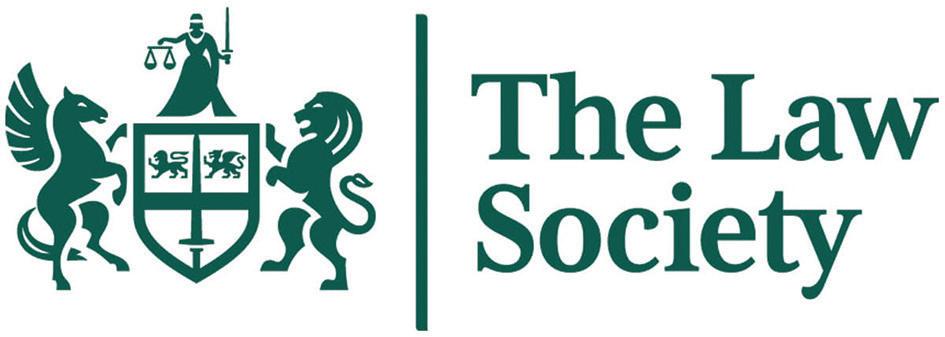
to threats but be proactive in shaping the justice system in accordance with that vision. The 21st Century Justice project is a three-year policy development programme which will demonstrate the leading role of the Law Society in tackling some of the biggest problems in the justice system and to increasing access to justice.
This project will bring together the Society’s professional knowledge and expertise with that of external stakeholders in a collaborative and visible process that will deliver credible policy proposals to influence the development of 2024 General Election manifestos and, beyond that, future justice policy. In doing so, it will deliver on the corporate objectives set by the Council to protect the justice system and make sure it applies to everyone equally.
Members will be aware that in the latter part of 2022 CILEX approached the SRA with a view to re-purposing its regulatory oversight so that the SRA becomes its regulator rather than the existing CILEx Regulation (CRL). Having been unable to mediate an agreement with regard to the dispute between CILEX and CRL the Legal Services Board (the overarching regulator) carried out an investigation which lasted for six months. It’s report and conclusions were published in April 2023. Those interested can download a full copy of that report here: https://legalservicesboard.org.uk/news/legalservices-board-publishes-cilex-crl-investigation-report
CILEX and CRL have agreed voluntary undertakings to fulfil the recommendations in the report. At this time, therefore, the LSB does not consider it necessary or proportionate to take formal enforcement action against CILEX or CRL. The LSB will keep this question under review as it monitors progress on the undertakings in fulfilling our recommendations.
The Mid-Essex Law Society (MELS) has been dormant for some time. A group of members (including Tony Fisher as Council member) have got together to try and relaunch the activities of MELS and a hybrid event will be held at 5:30pm on Thursday 8th June 2023. The event will be hosted at the offices of Fisher Jones Greenwood in Chelmsford and the event will be attending by Nick Emmerson the Vice President of the Law Society. Members of SNELS are welcome to attend although all in-person seats have now been taken so only remote attendance will be possible. Tony Fisher will also be talking about the new European Convention on the Profession of Lawyer, and there will be a brainstorming session to determine what members would like their local law society to provide.
Full details of the event together with a link allowing you to register to attend can be found here: https://email.lawsociety. org.uk/cv/6f5265b32dae797cdf9412fc042ff214c56f4c98

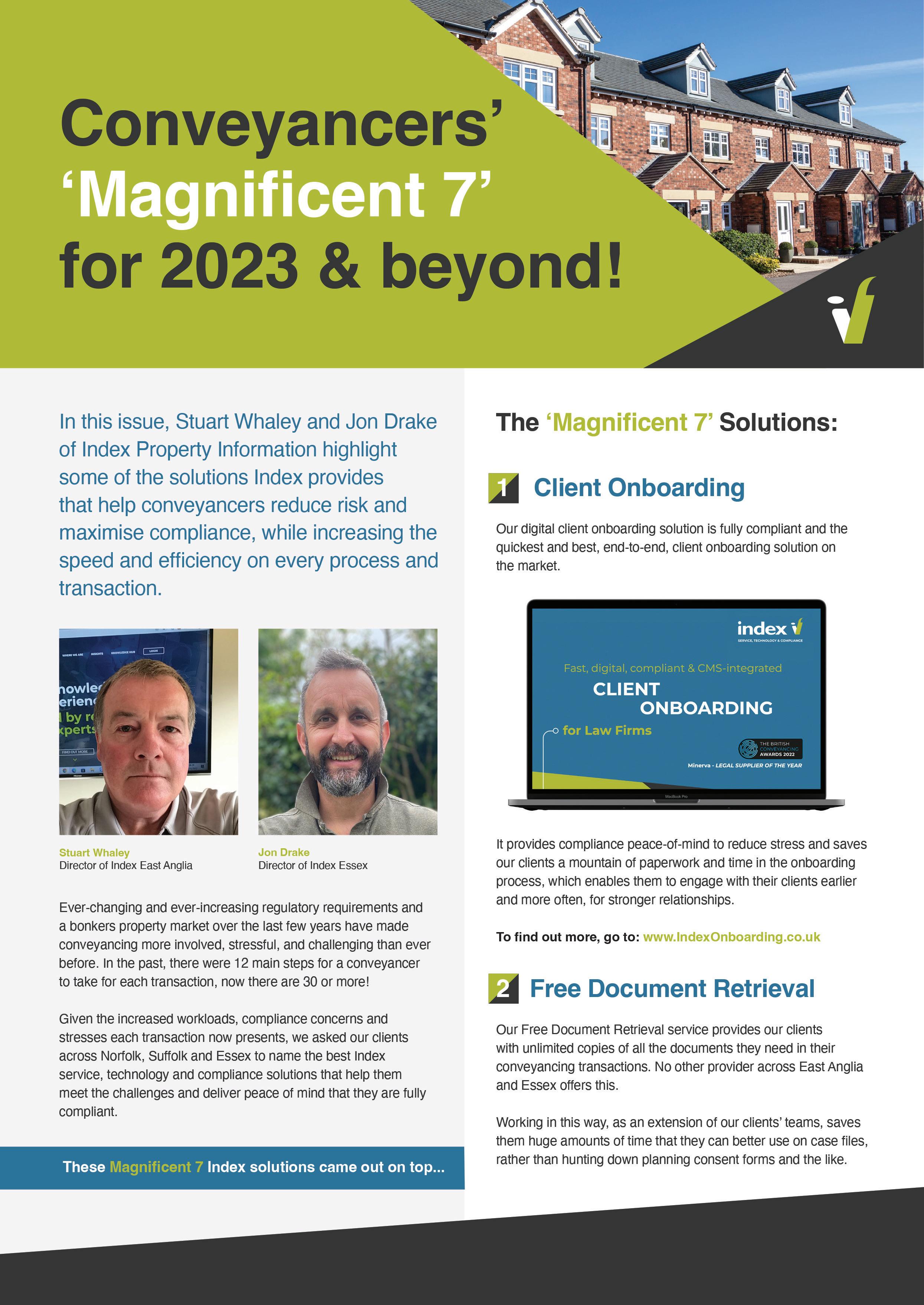
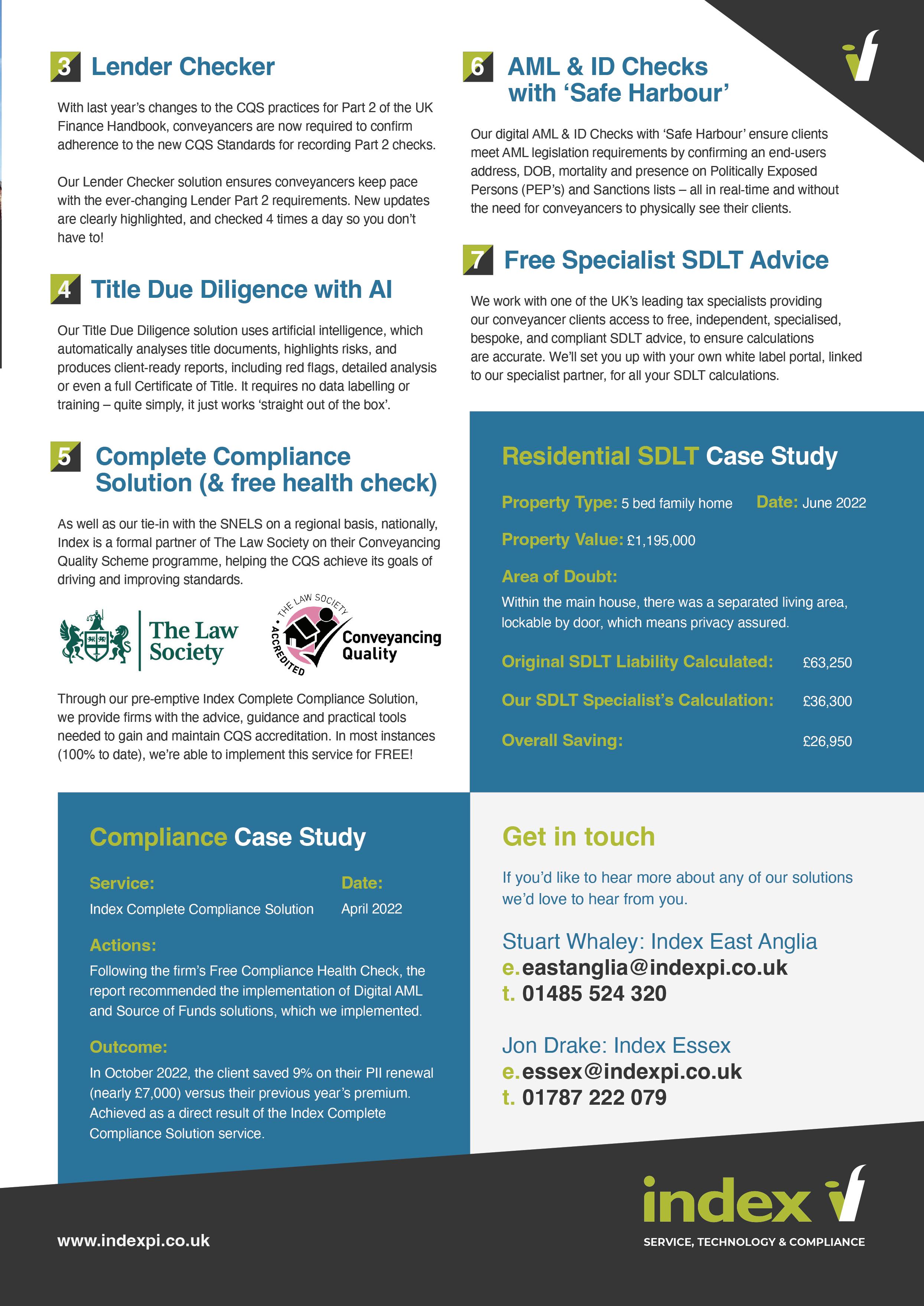

Probate Genealogy is a crucial part of the legal services world, helping Private Client professionals with their workload on a daily basis. Also known as probate research, the core service offerings are locating difficult to find beneficiaries named in wills or establishing and finding the relevant next of kin in intestacy and Court of Protection cases.
Research in this sector can be complex, detailed and often international, as can regularly involve crossing national borders. Case managers simply follow the research, wherever in the world it leads them.
Probate Genealogy is a knowledge industry. It is work undertaken by dedicated and skilled people using both new and more traditional methods. The expertise lies in locating and correctly applying historical records and data to identify individuals, assets, and estates. Over time, a ‘gut feel’ for things develops as knowledge is acquired.
You might think that in this increasingly connected world that we live in, finding beneficiaries would be relatively straight forward, yet this is frequently not the case. On a general level, people forget to update their contact details when they move residence (which happens more often now) and can drop off electoral rolls and other government databases. More specifically, in some instances, people simply do not want to be found and make it difficult to be located.
In cases of intestacy, the work of probate genealogists becomes particularly important as it can often be unclear as to whom is entitled to inherit assets where no valid will is in place to follow. In fact, this is a particularly prevalent issue with industry reports stating that up to two in three deaths in the UK in 2021 was intestate.

The research work carried out checking family trees and verifying entitled beneficiaries can save both probate and Court of Protection professionals a huge amount of time and effort. Probate research really dovetails with the work being undertaken by those in Private Client teams up and down the land; in fact, all over the world.
A probate genealogist is also able to assist Court of Protection solicitors making Statutory Will applications by verifying the family trees and identifying existing or prospective beneficiaries in a discreet and empathetic manner. A further and often overlooked service that can also be offered by genealogist firms is access to ‘living person’ financial asset searches.
At locally based Anglia Research, we have a wealth of experience in providing help and guidance on Court of Protection cases and are proud supporters of the Professional Deputies Forum.
The importance and relevance of probate genealogy firms is ever increasing, but it surprises many to learn that it is an unregulated industry, with no set entry requirements. Therefore, reputation and professionalism are key, and most firms (though not all) have suitably qualified staff undertaking the research work.
In fact, Anglia Research employ more accredited genealogists, legally qualified and independently regulated staff than any other UK probate research company. We were delighted to recently be awarded the Best Probate Research Organisation of the Year at the illustrious and independent National Paralegal Awards held in Birmingham.
The takeaway message here would be: By using a probate genealogist, a legal professional is effectively ‘outsourcing’ elements of their work – there must be confidence that the work carried out by a genealogist is accurate, to a high standard, and legally sound.
Probate genealogy is about so much more than just finding missing beneficiaries or reconstructing family trees – other services include assistance with asset reunification, financial asset and bankruptcy searches, Missing beneficiary indemnity insurance, and even assisting with a law firm’s Unclaimed Client Funds obligations.
So next time you are faced with a not-so-straight forward case, do not be afraid to instruct a reputable probate genealogy firm such as Anglia Research to carry out the heavy lifting for you.


The SRA has recently published new case studies to help law firms remain compliant with the SRA Accounts Rule 3.3. This rule states that solicitors cannot provide banking facilities to clients or third parties and that there must be proper connection between client funds held and the delivery of regulated services.

This update reaffirms the SRA’s focus on this rule and how seriously they view the provision of banking facilities. We summarise each of the additional case studies and provide action points.
1. Lender’s condition on mortgage offer
Where the conditions of a mortgage offer require other debts to be settled before the balance is released to the borrower, there would not be a breach of rule 3.3, provided the conditions are detailed specifically.
2. Legal advice only retainers
This example is where a firm is providing advice in relation to Stamp Duty Land Tax (SDLT) but did not act for the property purchase. The client wants to forward the tax payable to the firm for onward payment to HMRC on their behalf. The conclusion is that this is a breach of rule 3.3 as there is no obvious reason for the money to pass through the firm’s client account and it’s not directly related to the advice being provided.
3. Sale of the matrimonial home as part of divorce proceedings
This case describes a situation where net sale proceeds have not been distributed as an agreement between the parties is yet to be reached. In the absence of a court order, the SRA don’t consider there to be a breach of rule 3.3 and the firm can retain the funds.
Where a solicitor is asked to settle a debt to a third party from the net sale proceeds and there is no court order, again, the SRA would not consider a payment a breach of rule 3.3. However, they do expect firms to be mindful of their professional obligations and make sure that:
• The payment is in respect of an existing debt which would be taken into account in the resolution of the ancillary proceedings.
• The firm has the written consent of both of their respective solicitors.
• The firm is satisfied that this is not an insolvency situation risking the preferential treatment of one creditor over others.
This example is where a firm has acted on a matter for a parent, and their child has instructed another solicitor in the firm to act on an unassociated matter.
If money is retained on the parent’s matter to cover the firm’s fees on the child’s matter, there is no breach of rule 3.3, so long as there are no other red flags as outlined in the warning notice: https://www.sra.org.uk/solicitors/guidance/improper-client-accountbanking-facility/
Where a retention is held as part of a conveyancing matter, there
This article is designed for the information of readers. Whilst every effort is made to ensure accuracy, information contained in this article may not be comprehensive and recipients should not act upon it without seeking professional advice. “Larking Gowen” is the trading name of Larking Gowen LLP, which is a limited liability partnership registered in England and Wales (LLP number OC419486). Where we use the word partner it refers to a member of Larking Gowen LLP. © Larking Gowen
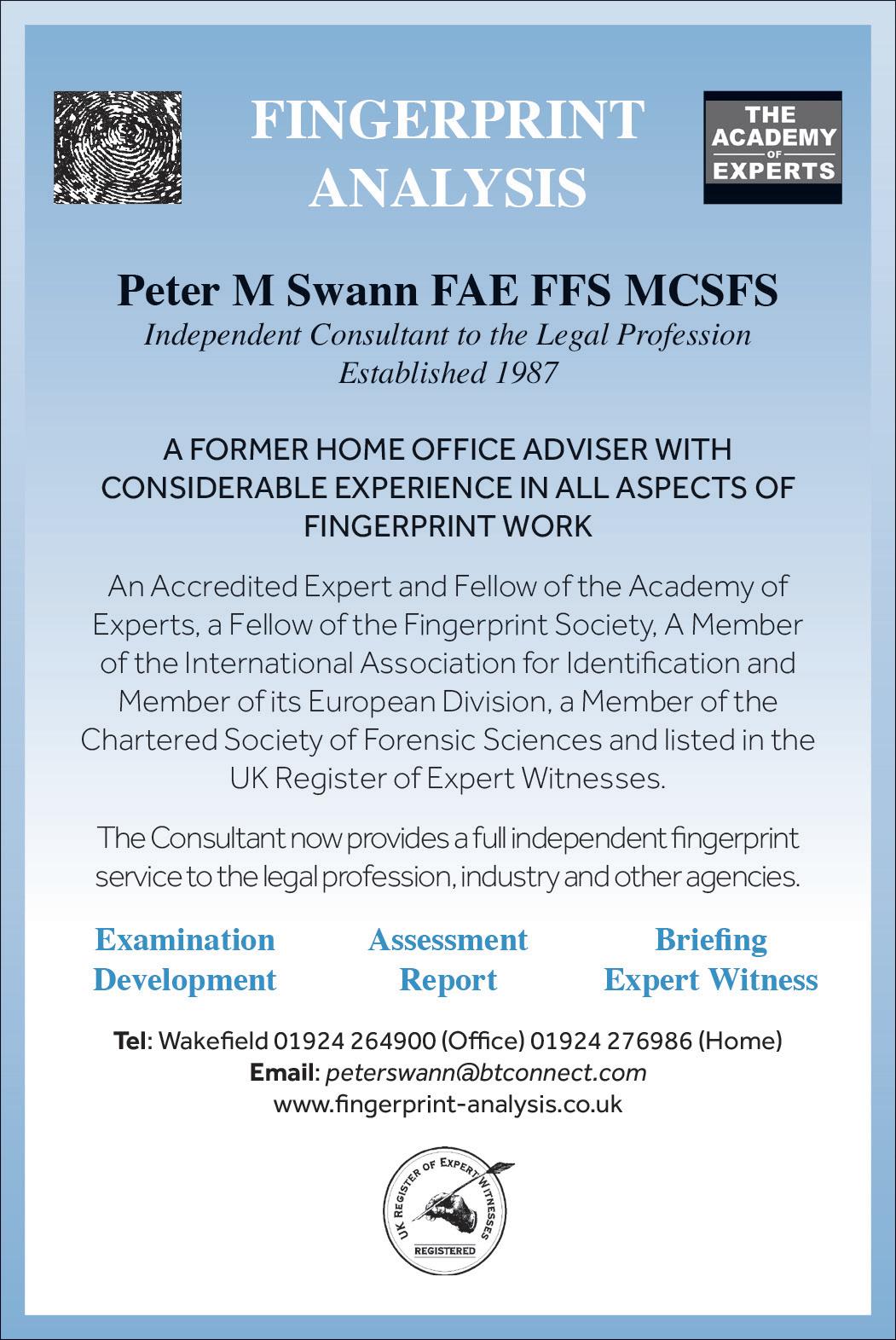

shouldn’t be a breach of rule 3.3. Ordinarily, the money for a retention would not be required to be held for long, although the SRA acknowledges there are instances where it will take longer. In those instances, firms are advised to review the need to hold the retention on a regular basis so that funds are not held for longer than necessary.
Action points:
• It’s important to remember that each matter should be reviewed on an individual basis and firms should consider the circumstances unique to that case in detail. Matters should not be “shoehorned” into one of the case study examples where the underlying facts are different.
• Make sure that you continually question why you’re being asked to receive or send funds and how this is related to the services provided.
• Ensure your teams are sufficiently trained on the requirements of the rules and know who to approach if they have a query in relation to compliance.
• Make sure sufficient notes are kept on file of any judgement reached.
If you have any queries in relation to the SRA Accounts Rules, please reach out to our Legal accounting team. We would be delighted to assist you.
Call 0330 024 0888 or email enquiry@larking-gowen.co.uk.
“It’s another step in supporting the industry wide adoption of UPRN which we believe will bring huge benefit throughout the conveyancing process”.
Property portal Zoopla has announced it is heavily investing in UPRN at a recent conference. It believes that by improving data quality around the home buying process, it is possible to reduce fall-throughs and speed up conveyancing.
Ellie adds that from a search point of view UPRN will also provide greater surety of location.
The adoption of Unique Property Reference Numbers (UPRN) presents an opportunity to simplify and speed up the conveyancing process, according to Geodesys.

Momentum is steadily growing behind the wider adoption of UPRN across the property industry. Currently, the main barriers to adoption are awareness and the availability of using the UPRN through a transaction with all parties.

But a Today’s Conveyancer survey of conveyancing practitioners at the end of 2021 identified that awareness across the conveyancing sector was growing with 65% of respondents suggesting they understood what UPRN are, and of those 85% suggested they would be “useful in providing a single point of focus for data on property.”
However only 11% of respondents suggested they used UPRN “Every time” or “Often” in the course of a transaction.
In April UPRNs were included in the Buying and Selling Property Information (BASPI) protocol, developed by trade bodies from across the home buying sector to support the digitisation of property information and enable the collation of up front information from consumers. A “single source of truth,” the BASPI has been designed to reduce the huge duplication of information collected in the course of a conveyance and bring it into a single space.
“How many times have you had to provide more information about a parcel of land or check the plan to ensure you’ve included the full boundary of the property?”
“UPRN will map out property locations, including any additional parcels, and ensure the search covers the full outline of the property.”
There is a risk that wider adoption will become a catch-22 situation. The results of the Today’s Conveyancer survey show that wider adoption amongst property lawyers will be dependent on a demonstrable improvement in the conveyancing process, something only achievable if each side of the transaction is using UPRN.

Indeed a number of comments from the survey indicate that UPRN confuses the issue, with some respondents indicating that title numbers are, in effect, unique.
“Title numbers are unique to the conveyancing process. UPRN are designed to help capture data beyond the home moving process, such as emergency response, HMRC and other govt departments, and have the potential to build a “property passport” or “property logbook” as an immutable single source of truth to tie property data to”
says Ellie
“We must, as an industry, embrace adoption to be an enabler in the digitisation of property data, rather than risk holding back progress and missing this critical opportunity to improve home ownership.”
“We have incorporated UPRN search into the Geodesys platform for a number of years, alongside postcode and address look up. The Geodesys system works by linking a UPRN to a title number so you have the benefit of either because of how we match them up.
“The idea behind UPRN is to provide greater certainty around the location of property and uniformity of addressing”
Says Ellie Player, Head of Geodesys.Suffolk & North Essex Law Society

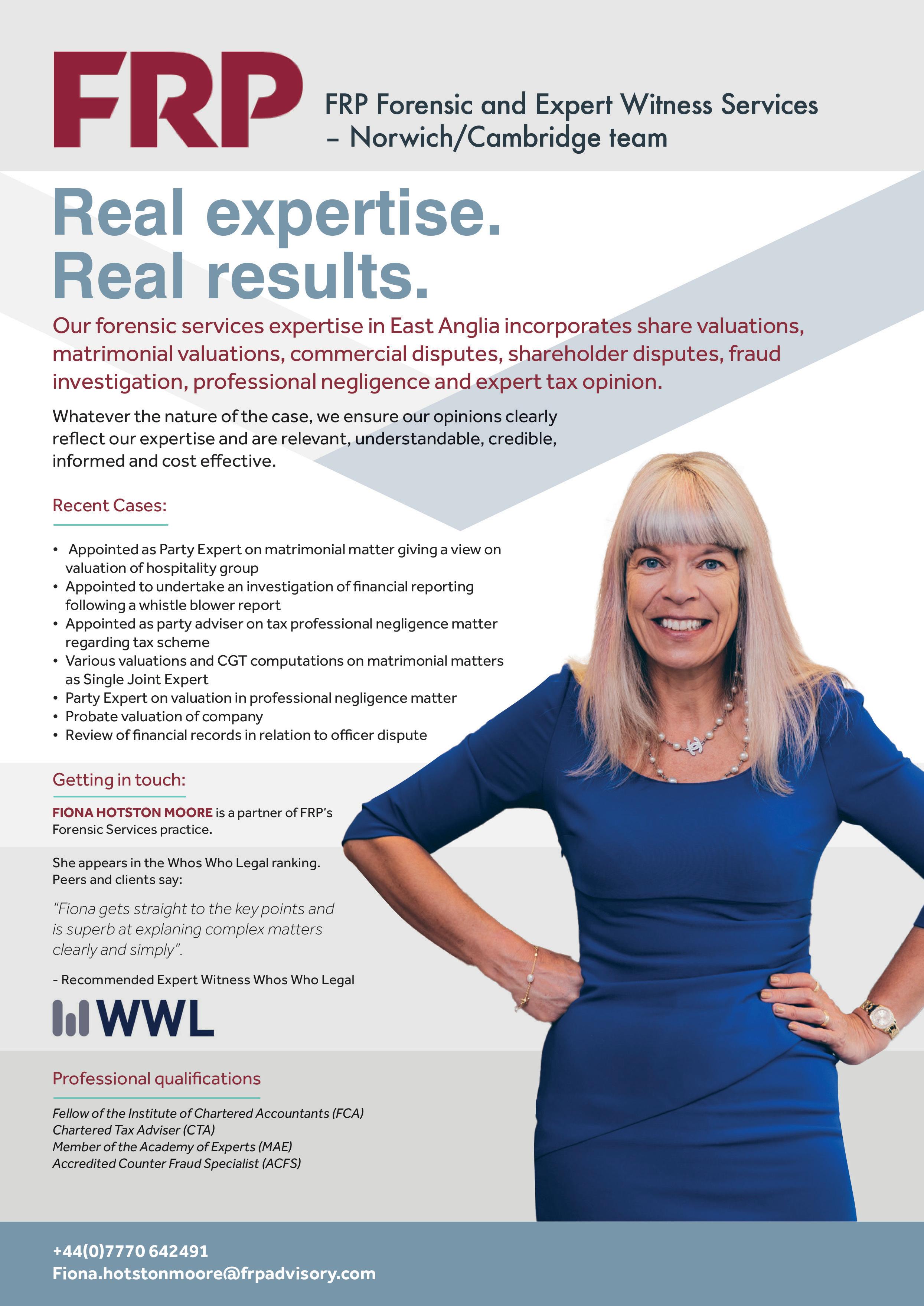
The last few months have been particularly varied and interesting in terms of the matters on which I have been instructed as expert witness. I am fortunate to be assisted by an experienced team of forensic accountants which enables us to accept a number of instructions from large fraud investigations and professional negligence cases through to smaller matrimonial matters. Here are just a few of our recent cases highlighting what we found particularly interesting or challenging.
Following the preparation and disclosure of our report and correspondence between the parties, the matter settled in favour of our client and therefore on this occasion avoided protracted and costly litigation.
A key challenge on this case was to determine an approach that enabled us to focus our review on the key contracts ensuring that our work was cost proportionate.
Engagement to undertake a financial investigation following a whistleblower report
Following a report by a whistleblower, I was engaged to undertake a financial investigation into the financial reporting, corporate governance and internal controls of a fast growing entrepreneurial business in the technology sector. The engagement required a rapid deployment of our Forensic Services team to complete the investigation, as the matter had a potentially significant impact on business operations.
Instruction as party expert to assess a warranty claim and to determine the value of any loss arising
I was instructed as party expert by a transport technology company to review and give an opinion on a warranty claim arising in respect of buying a business in which the sale completed in 2021. I was instructed to review the completion accounts and to give a view on the warranty claim and the potential loss arising.
We reviewed the completion accounts and management accounting with particular reference to the recognition of income on the customer contracts. In our opinion the completion accounts materially overstated the income and there was a claim under the warranties.

The client, a business providing services in the construction sector, was involved in a professional negligence claim against a firm of solicitors, arising from the advice given in relation to the corporate finance transaction regarding the disposal of the business. The company was claiming for a resulting loss, as the sale consideration was substantially less than was anticipated. I was engaged as party expert witness to give a valuation of the company at the time of the sale, which had taken place around 10 years earlier.
We prepared financial and market analysis looking at the information available at the time of the sale. My valuation considered the relevance of alternative methodologies and explored the value that an alternative purchaser might have placed on the company. Following the valuation, a joint report was prepared, combining our team’s findings with the findings from the other party’s expert who provided an alternative view.
The matter was settled just prior to the court hearing, in favour of our client. The lawyers said the work undertaken by us had placed the client in a good position to negotiate the deal achieved.
A key issue on this case was to assess the market value of the company at a point 10 years earlier and based on the information that would have been available at that time and so avoiding tainting my view with the benefit of hindsight.
We were appointed as forensic accountants to undertake the in-depth investigation, including a review of financial records, interviews of company staff, and the investigation of electronic records. Our Forensic Services staff were deployed from our Cambridge, Norwich and Birmingham offices alongside our forensic technology team, and worked on the investigation with the instructed lawyers. Our review initially identified over 240,000 documents; the team was able to refine these to a subset of 15,000 potentially relevant items that were included in our investigation.
FRP’s engagement was concluded – and a full report including recommendations issued – within 10 weeks. The client and instructing lawyers were pleased with the efficiency and thoroughness of our team’s investigation. Following the issue of our report the investigation was concluded and the company was able to share the executive summary with relevant parties.
The key challenge in this case was to sift through 240,000 documents and using search methodology to reduce the documents to a manageable number that could be reviewed by the team.


MONDAY 3 APRIL 2023: Legacy giving has risen by 43% over the past decade according to new research out today. 20% of UK charity supporters aged 40+ now say they have left a charitable gift in their Will compared with 14% in 2013. The research charts a steady rise in the proportion of people choosing to give from their Will over time.
Legal advisers play a critical role in making clients aware of the option of including a gift in their Will, with more than half of the giving public (54%) saying they have used or would use a solicitor or professional Will-writer to set out their final wishes.
The Remember A Charity consumer benchmarking research*, carried out by independent research firm OKO, surveys more than 2,000 charity donors aged 40+ to track legacy giving attitudes and behaviour year-on-year. The 2022 research released today found that:
• One in five supporters said they had included a charity in their Will (20%)
• Just over one in 10 said they are preparing to do so (11%)
• Fewer than one in 10 reject the concept altogether (9%).
The tracking research, which follows Prochaska’s Stages of Change model, shows forward movement over the years from donors’ rejection and lack of awareness through to awareness, contemplation, preparation and action (leaving a gift).**
Lucinda Frostick, Director at Remember A Charity, the consortium of 200 UK charities working to promote charitable gifts in Wills, says: “This continued growth in appetite for legacy giving is hugely encouraging, reflecting greater understanding of the option to pass on gifts to good causes alongside loved ones in a Will. It may take years – in some cases decades – for donations to filter through, but that income will be crucial in funding charitable services for generations to come.”
Just under two thirds of people surveyed (63%) had already written a Will, with three in 10 of those having included a charitable donation (29%). Despite the economic climate, the large majority of all respondents (80%) said they were just as likely to leave a charitable gift as 12 months earlier, with twice as many people (14%) saying they were more likely to give than
those saying they were less likely (6%). More than four in ten people are aware of the inheritance tax advantages of leaving charitable gifts in Wills.
The age at which people first wrote a Will is unchanged; just over half write their first Will when under the age of 50, with the average age of first Will-writing being 50. Those more likely to have written a will are older and more financially affluent. Those with less assets, no children or grandchildren, or from ethnic minorities are less likely to have written a Will. The research reports that death of a loved one is a key trigger - particularly for those making their first Will when younger. Birth, marriage or house purchases are also strong triggers for younger Willmakers, while retirement is a major driver for older generations.
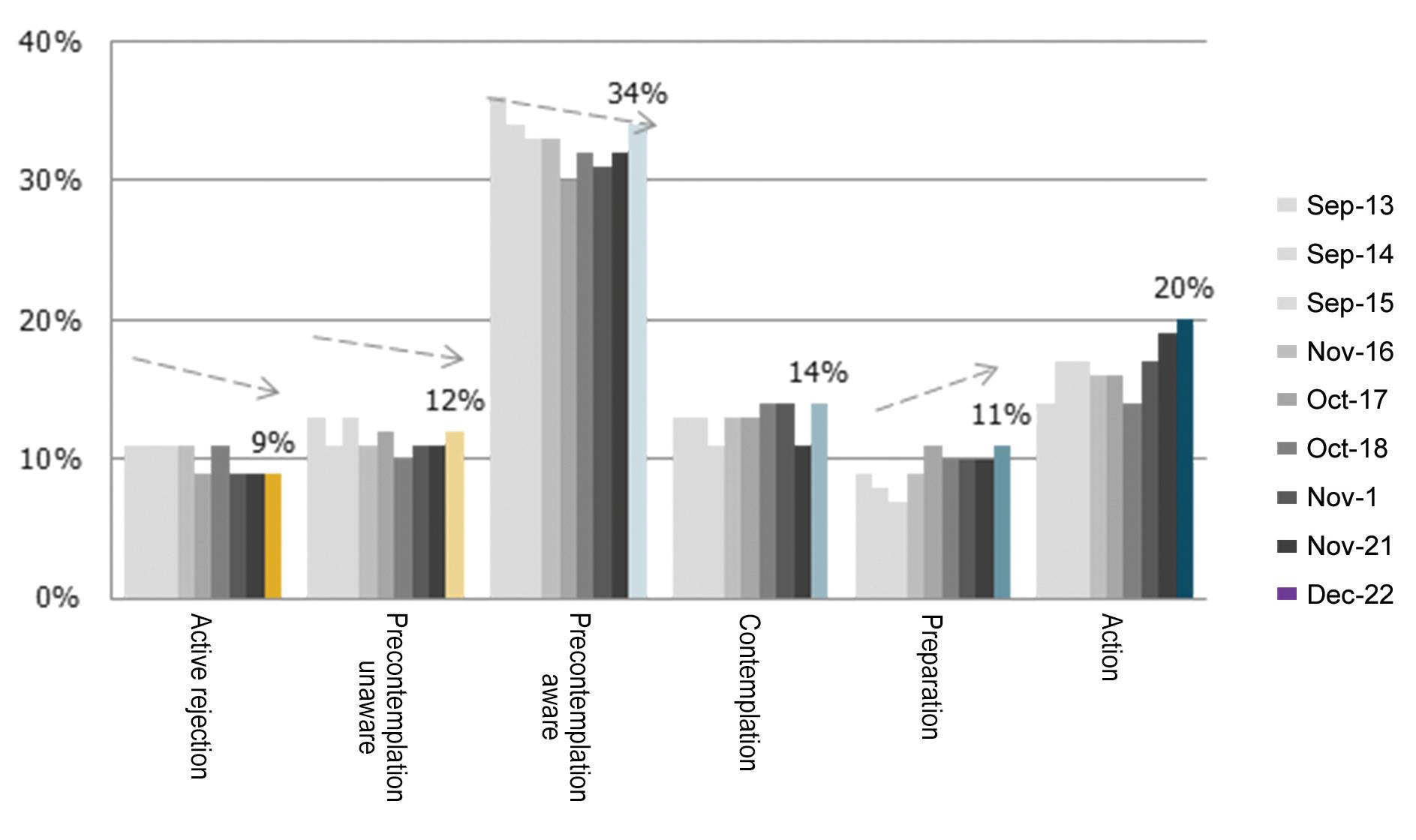
Remember A Charity runs a free Campaign Supporter scheme for solicitors and Will-writers, providing promotional resources and useful guidance for referencing legacy giving with clients. Find out more at:

www.rememberacharity.org.uk/about-us/for-solicitors-will-writers






